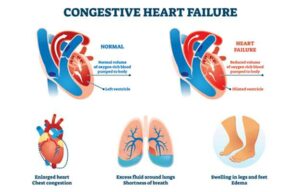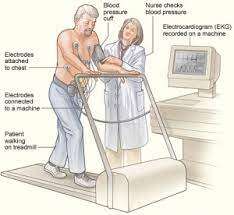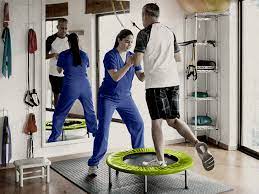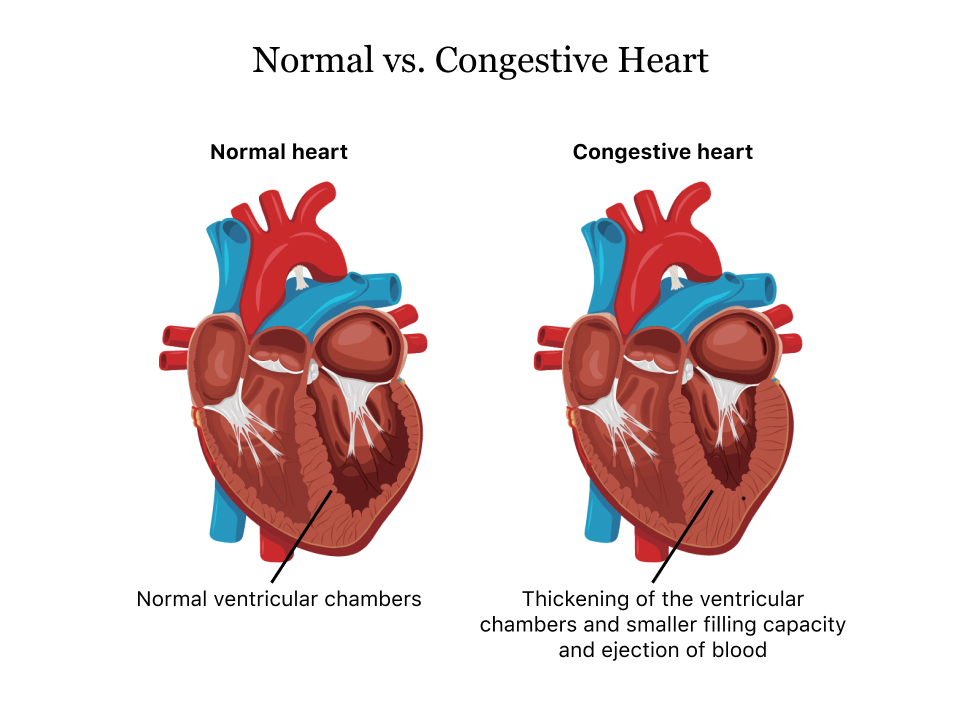If you or someone you know has been diagnosed with congestive heart failure, there are a number of treatment options available. One of the most effective treatments is physical therapy. Physical therapists can help improve your quality of life and manage your symptoms. In this blog post, we will discuss the benefits of physical therapy for congestive heart failure and how it can help you live a healthier life.
Contents
- 1 What Is Congestive Heart Failure?
- 2 Can Physical Therapy Help With Congestive Heart failure?
- 3 What Types OF Physical Therapy Is Used In Congestive Heart Failure?
- 3.1 Aerobic Exercise
- 3.2 Cardiovascular Training
- 3.3 Strength Training
- 3.4 Flexibility Training
- 3.5 Balance Training
- 3.6 Breathing Exercises
- 3.7 Improve the symptoms of heart failure
- 3.8 Reduce the risk of hospitalization
- 3.9 Help you to manage your condition
- 3.10 Improves overall wellbeing
- 3.11 Reduces mortality rates
- 4 Can Congestive Heart Failure Be Prevented?
- 5 Conclusion
What Is Congestive Heart Failure?

Congestive heart failure (CHF) is when the heart can’t pump enough blood to meet the body’s needs. This can lead to a buildup of fluid in the lungs, abdomen, and extremities.
It is often caused by other conditions that damage or weaken the heart, such as coronary artery disease, heart attack, and high blood pressure.
CHF is a serious condition that can be fatal if not treated. However, with proper medical treatment and lifestyle changes, many people with CHF live long and productive lives.
Can Physical Therapy Help With Congestive Heart failure?
Yes, physical therapy can help people with congestive heart failure (CHF) by teaching them how to improve their cardiovascular fitness and strength, manage their symptoms, and prevent further progression of the condition.
Heart failure is when the heart can’t pump enough blood to meet the body’s needs. Physical therapy may be recommended as part of your treatment plan. A physical therapist can help you manage your symptoms and improve your quality of life.
What Types OF Physical Therapy Is Used In Congestive Heart Failure?

The types of physical therapy used in Congestive heart failure are as follows:
Aerobic Exercise
Aerobic exercise is any type of rhythmic physical activity that increases your heart rate and breathing. It is often recommended as part of a rehabilitation program for people with congestive heart failure. Regular aerobic exercise can help to improve your overall cardiovascular fitness and reduce symptoms such as shortness of breath and fatigue.
Cardiovascular Training
Cardiovascular training is a type of exercise that specifically works to improve the function of your heart and blood vessels. This type of training can be an important part of a rehabilitation program for people with congestive heart failure. Cardiovascular training can help to improve your overall cardiovascular fitness and reduce symptoms such as shortness of breath and fatigue.
Strength Training
Strength training is a type of exercise that specifically works to improve the strength of your muscles. This type of training can be an important part of a rehabilitation program for people with congestive heart failure. Strength training can help to improve your overall cardiovascular fitness and reduce symptoms such as shortness of breath and fatigue.
Flexibility Training
Flexibility training is a type of exercise that specifically works to improve the flexibility of your muscles. This type of training can be an important part of a rehabilitation program for people with congestive heart failure. Flexibility training can help to improve your overall cardiovascular fitness and reduce symptoms such as shortness of breath and fatigue.
Balance Training
Balance training is a type of exercise that specifically works to improve your balance. This type of training can be an important part of a rehabilitation program for people with congestive heart failure. Balance training can help to improve your overall cardiovascular fitness and reduce symptoms such as shortness of breath and fatigue.
Breathing Exercises
Breathing exercises are a type of exercise that specifically works to improve your breathing. This type of exercise can be an important part of a rehabilitation program for people with congestive heart failure. Breathing exercises can help to improve your overall cardiovascular fitness and reduce symptoms such as shortness of breath and fatigue.
What Are The Benefits?

The benefits are as follows:
Improve the symptoms of heart failure
Heart failure can cause a number of different symptoms, such as fatigue, breathlessness, and fluid retention. Physical therapy can help to improve these symptoms by increasing the strength and endurance of your muscles, which in turn reduces the strain on your heart.
Reduce the risk of hospitalization
Hospitalization for heart failure is often caused by a deterioration in symptoms. Physical therapy can help to reduce the risk of this happening by keeping your muscles strong and improving your overall fitness.
Help you to manage your condition
Physical therapy can also help you to understand your condition better and learn how to manage it effectively. This includes advice on lifestyle changes, such as diet and exercise, that can help to improve your symptoms and overall health.
Improves overall wellbeing
Physical therapy can also help you to understand your condition better and learn how to manage it effectively. This includes advice on lifestyle changes, such as diet and exercise, that can help to improve your symptoms and overall health. Improve your quality of life: Managing your congestive heart failure will not only improve your physical symptoms but can also have a positive impact on your quality of life. This can include reducing stress, improving your ability to carry out everyday activities, and increasing your overall sense of well-being. Among patients with congestive heart failure, those who receive physical therapy have a better quality of life scores on measures of functional status and well-being, compared to those who do not receive physical therapy.
Reduces mortality rates
Patients that receive physical therapy for congestive heart failure have reduced mortality rates. One study found that patients that received at least three sessions of physical therapy had a 38% lower risk of death than those who did not receive any physical therapy.
Other studies have shown similar results, with patients who received physical therapy having a 25-30% lower risk of death than those who did not. In addition to reducing mortality rates, physical therapy can also improve the quality of life for patients with congestive heart failure.
Physical therapy can help to improve the symptoms of heart failure by working on increasing the strength and endurance of the muscles. This can help reduce the heart’s workload and improve the heart’s pumping action. Physical therapy can also help to reduce the risk of hospitalization by helping to manage the symptoms of heart failure and prevent the worsening of the condition. Physical therapy can also help to improve the quality of life by helping patients to regain their independence and participate in activities that they enjoy. Finally, physical therapy can help to reduce mortality rates by helping patients to manage their symptoms and improve their overall health.
Can Congestive Heart Failure Be Prevented?
The prevention of congestive heart failure (CHF) is a major challenge. It is a condition where the heart is unable to pump enough blood to meet the body’s needs. CHF can be caused by many things, including coronary artery disease, high blood pressure, and diabetes. While there is no definitive answer to preventing CHF.
Certain lifestyle changes have been shown to help reduce the risk of developing the condition. These include eating a healthy diet, exercising regularly, and managing conditions such as diabetes and hypertension. abstaining from smoking. If you have already been diagnosed with CHF, working with a heart failure specialist can help you manage your condition and prevent it from getting worse.
Conclusion
It may be concluded that physical therapy for congestive heart failure can be an effective treatment option for patients. It can improve cardiovascular function and quality of life, and may also help to reduce hospital readmission rates. However, more research is needed to determine the long-term efficacy of this therapy.
Physical Therapy help patients recover from pain. If you’re experiencing Back pain, Shoulder pain, Knee pain, Neck pain, Elbow pain, Hip pain, or Arthritis pain, a physical therapist at MantraCare can help: Book a physiotherapy session.


